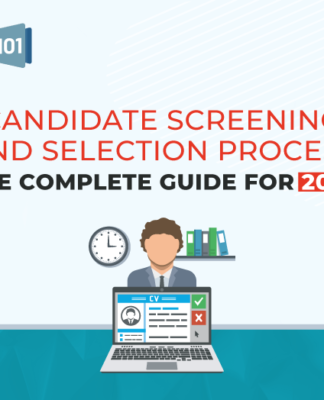As newsrooms start to embrace generative AI, what does that mean for journalism?
Journalists and newsrooms are working out how AI fits into their workflows
By Luke Hurst • Updated: 20/06/2023
At VivaTech, Euronews Next caught up with Charlie Beckett, the professor leading LSE’s JournalismAI project, to find out how artificial intelligence is impacting journalism.
Artificial Intelligence (AI) was the inevitable buzzword at VivaTech in Paris, the tech and startup conference that drew tens of thousands of people from around the world last week.
With generative AI tools like ChatGPT and Midjourney exploding onto the scene this year, much of the talk at the event was around how AI will affect – or is already affecting – different occupations and industries.
Writers, artists, music producers, and developers are all feeling the effects of AI in their day-to-day working lives.
And another industry that is keeping a close eye on AI is journalism.
Newsrooms around the world are starting to grapple with how they are going to incorporate the technology into their workflows and workplaces.
Charlie Beckett, a professor at the London School of Economics and Political Science (LSE) who runs the university’s JournalismAI project, discussed how AI could impact journalism at VivaTech.
“Change is the one constant in journalism,” he told Euronews Next.
A veteran journalist who worked at some of the UK’s biggest news organisations, Beckett has seen the monumental technological changes that have occurred over the past few decades in the industry.
He has been leading a course on AI and journalism at LSE, helping smaller newsrooms to take advantage of the technology to boost productivity and impact in a time of diminishing funding and revenue streams for news.
A JournalismAI report in 2019 found even the newsrooms furthest ahead with AI adoption were using it only as an additional or supplementary tool, and it was not yet transformational in the way things worked. Leaders surveyed did not expect an “immediate revolution at scale through AI” compared to other industries.
Does that still stand in the wake of the generative AI revolution?
“Certainly this is a kind of acceleration that probably we’ve not seen,” said Beckett.
“You know, when you think about the Internet, it took decades for that to spread through news organisations, same with social media, really. It took four, five, six years before news organisations understood how to use Facebook or Twitter.
“This one, I think it’s going to be super fast in the sense of getting to grips with it. But I think the longer-term impact, let’s see what happens”.
AI is dominating VivaTech 2023. Here’s what else to expect from this week’s tech show in Paris
AI in the newsroom
One major news organisation, The Guardian in the UK, outlined last week how it was going to approach the use of generative AI.
“When we use genAI, we will focus on situations where it can improve the quality of our work, for example by helping journalists interrogate large data sets, assisting colleagues through corrections or suggestions, creating ideas for marketing campaigns, or reducing the bureaucracy of time-consuming business processes,” wrote the paper’s editor Katharine Viner, and CEO Anna Bateson, in a joint statement.
Until recently, individual journalists probably didn’t have much direct interaction with AI, or even awareness of what it was doing in their newsrooms.
That’s because “it was often doing quiet, repetitive, small-scale or easy-to-do things, like automating headlines or automatically publishing things like the weather or football results,” said Beckett.
But now journalists have tools like ChatGPT which could have a major impact on how things are done.
“Suddenly the individual journalists can play with it (AI) themselves and they can see both how exciting it is and the potential creativity of it, but also, of course, the downsides, you know, that it makes mistakes and so on,” he said.
According to Beckett, we are in a “new world” that is going to be unstable and unpredictable, and the best thing any journalist can do is ensure they know a bit about these new technologies. That’s partly because it could help them to do a better job.
But he said this was a particularly important point: “Whatever you report on, it doesn’t matter whether it’s football, conflict or the economy or medicine or education. All those sectors are now going to be influenced by AI.
“AI is a story in whatever beat you have. And so you need to know at least a bit about it and get across it if you want to power yourself up as a journalist”.
VivaTech 2023: From air scooters to tiny cars, these 5 companies are rethinking how we travel
Doing the work the machines can’t do
One of the constant threads to the AI story this year has been whether the machines are coming for your job. And as they prove effective at text generation, analysing information, and editing, could journalism itself be at risk of being taken over by computers?
For Beckett, the answer depends on how journalism adds value in the future.
“I think it’s partly by using the tech, but actually it’s going to be the human side,” he said.
“It’s going to be the investigative journalism, it’s going to be the funny journalism, and it’s going to be the politically committed journalism”.
Machines can’t get out of the office, talk to people in the streets and witness what’s happening in the world, he continued.
“You’ve got to bear in mind, so far the machines are just that – they don’t know anything. Generative AI is a language machine. It’s not a truth machine. It doesn’t know anything and it doesn’t care. So those are the qualities that the human journalist has got to foreground”.






























